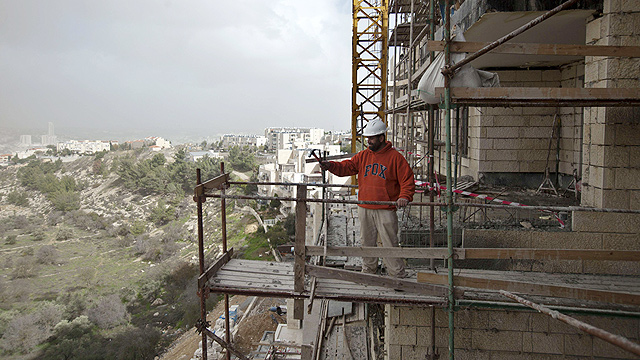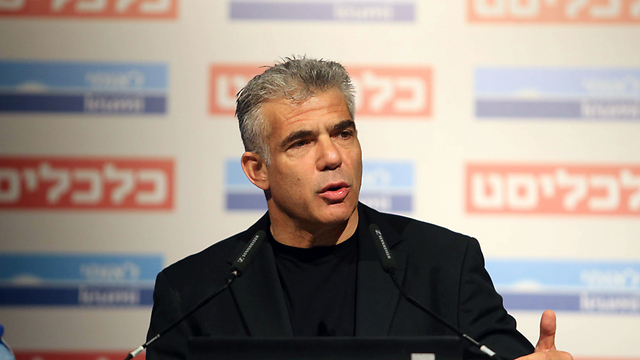
Finance Minister Yair Lapid addressed Israel's move to expropriate some 4,000 dunam of West Bank land, saying it harms Israel and its relations with the US.
Speaking at Calcalists Economic Forum, Lapid said "decisions like the one announced yesterday, on the nationalization of (the area) for building, raises the question 'what good does it do at this time?' This is underhanded opportunism that was not put to the Cabinet and just harms Israel."
Israel announced Sunday it would recognize 400 hectares (988 acres or 4,000 dunams) in Gush Etzion as State land to allow the establishment of the G'vaot settlement.
Lapid elaborated on his claim, stressing that the timing of the decision – which was taken in retribution for the murder of the three Israeli teens in the area in June – was problematic and further strained relations with the US.
"We have just completed a military operation and we are facing a sensitive international arena. We are already struggling to preserve international support, why was it so urgent to create another crisis with the Americans just now?" Lapid asked rhetorically.
Lapid stressed that though he and his Yesh Atid party support the two-state solution with the Palestinians, they also support building in the central settlement blocs which they claim will remain in Israel's control as part of any future peace deal. Nonetheless, he stated that "part of leading is knowing when and how to do certain things."
Lapid further reiterated his claim that Israel should lead an international summit on Gaza, instead of waiting for the world to dictate the conditions of Gaza's rehabilitation.
Lapid, who has claimed Israel's goal in Gaza is to demilitarize the Strip, said "if we do not want to go back to the way things were, then Operation Protective Edge cannot end in a ceasefire. We need to exit (this operation) with a regional summit which includes the moderate Arab nations (like Egypt and the Gulf states) – which fear radical Islamism as much as we do – and leads to an equation that says no rehabilitation without demilitarization.
The move to appropriate the area has inspired across the board critisim at Israel from rights groups as well as nations, and most recently from the UN.
UN Secretary General Ban Ki-moon expressed "alarm" at the move, his spokesperson said late Monday.
The United States urged Israel earlier Monday to reverse the plan, which has angered the Palestinians and alarmed Israeli peace campaigners.
Egypt also slammed the move, saying "This is not a positive step - it contradicts international law and will have negative consequences on the peace process," a foreign ministry statement in Cairo said.
Egypt last week mediated a permanent truce between Israel and the Hamas rulers of the Gaza Strip enclave to end a bloody and devastating 50-day war - the deadliest in years.
Negotiators are expected to return to Cairo within a month to discuss crunch issues such as Hamas's demands for a port and an airport and the release of prisoners, as well as Israel's call for militants in the Palestinian territory to be disarmed.
The foreign ministry did not mention the Gaza truce talks but insisted that Israel's planned land grab in the West Bank would be "an obstacle" to a two-state solution between Israel and the Palestinians.
Rights' groups also condemned the decision: "As far as we know, this declaration is unprecedented in its scope since the 1980s and can dramatically change the reality in the Gush Etzion and the Bethlehem areas," Peace Now said on Sunday.
Rights watchdog Amnesty International also denounced the Israeli plans, saying that it "appears to be the largest land grab in the occupied Palestinian territories since 1980".
"Israel’s strategy of illegally confiscating land for settlements in the West Bank must stop once and for all," said Amnesty's Philip Luther.
AFP contributed to this report

















